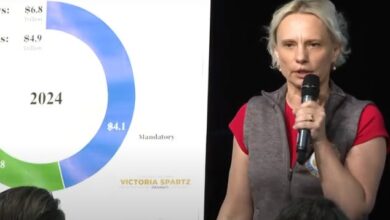US Supreme Court Rules Policeman Can Sue Black Lives Matter Activist

In a significant legal decision, the US Supreme Court has ruled that a policeman has the right to pursue a lawsuit against a Black Lives Matter activist. This ruling underscores the complex intersection of free speech, civil rights, and individual accountability in the United States.
The case stems from an incident where the officer, while performing his duties, claimed he was harmed by actions attributed to the activist. The specifics of the case highlight the tensions and legal ambiguities often present in public demonstrations and the actions that arise from them.
This Supreme Court decision marks an important precedent in determining the extent of legal immunity for activists and the boundaries of lawful protest. The court’s ruling emphasizes that while activists have the right to organize and speak freely, they may still be held accountable under civil law if their actions directly lead to harm to others.
Legal experts suggest that this ruling could have wide-reaching implications for how protests are organized and conducted in the future. It might lead activists to reconsider the strategies they employ in public demonstrations to ensure they do not expose themselves to similar lawsuits.
The decision has ignited a broad discussion on social media and among civil rights groups about the balance between ensuring public safety and protecting the rights of individuals to express dissent. Many see the ruling as a critical juncture in the ongoing debate over the rights of protestors versus the protections afforded to law enforcement officers.
As the case proceeds, it will likely continue to draw significant attention from legal scholars, civil rights advocates, and the general public interested in the evolving dynamics of law enforcement and civil liberties in the US.




